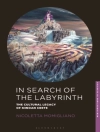This book is about history and morality in the twentieth century. It is about the psychology which made possible Hiroshima, the Nazi genocide, the Gulag, the Chinese Cultural Revolution, Pol Pot’s Cambodia, Rwanda, Bosnia and many other atrocities. In modern technological war, victims are distant and responsibility is fragmented. The scientists making the atomic bomb thought that they were only providing a weapon: how it was used was to be the responsibility of society. The people who dropped the bomb were only obeying orders. The machinery of the political decision-taking was so complex that no one among the politicians was unambiguously responsible. No one thought of themselves as causing the horrors of Hiroshima. Jonathan Glover examines tribalism: how, in Rwanda and in the former Yugoslavia, people who once lived together became trapped into mutual fear and hatred. He investigates how, in Stalin’s Russia, Mao’s China and in Cambodia, systems of belief made atrocities possible. The analysis of Nazism explores the emotionally powerful combination of tribalism and belief which enabled people to commit acts otherwise unimaginable.Drawing on accounts of participants, victims and observers, Jonathan Glover shows that different atrocities have common patterns which suggest weak points in our psychology. The resulting picture is used as a guide for the ethics we should create if we hope to overcome them. The message is not one of pessimism or despair: only by looking closely at the monsters inside us can we undertake the project of caging and taming them.
Jonathan Glover
Humanity [EPUB ebook]
the Recent Moral History
Humanity [EPUB ebook]
the Recent Moral History
购买此电子书可免费获赠一本!
语言 英语 ● 格式 EPUB ● ISBN 9781448163878 ● 出版者 Random House ● 发布时间 2015 ● 下载 3 时 ● 货币 EUR ● ID 3785775 ● 复制保护 Adobe DRM
需要具备DRM功能的电子书阅读器












